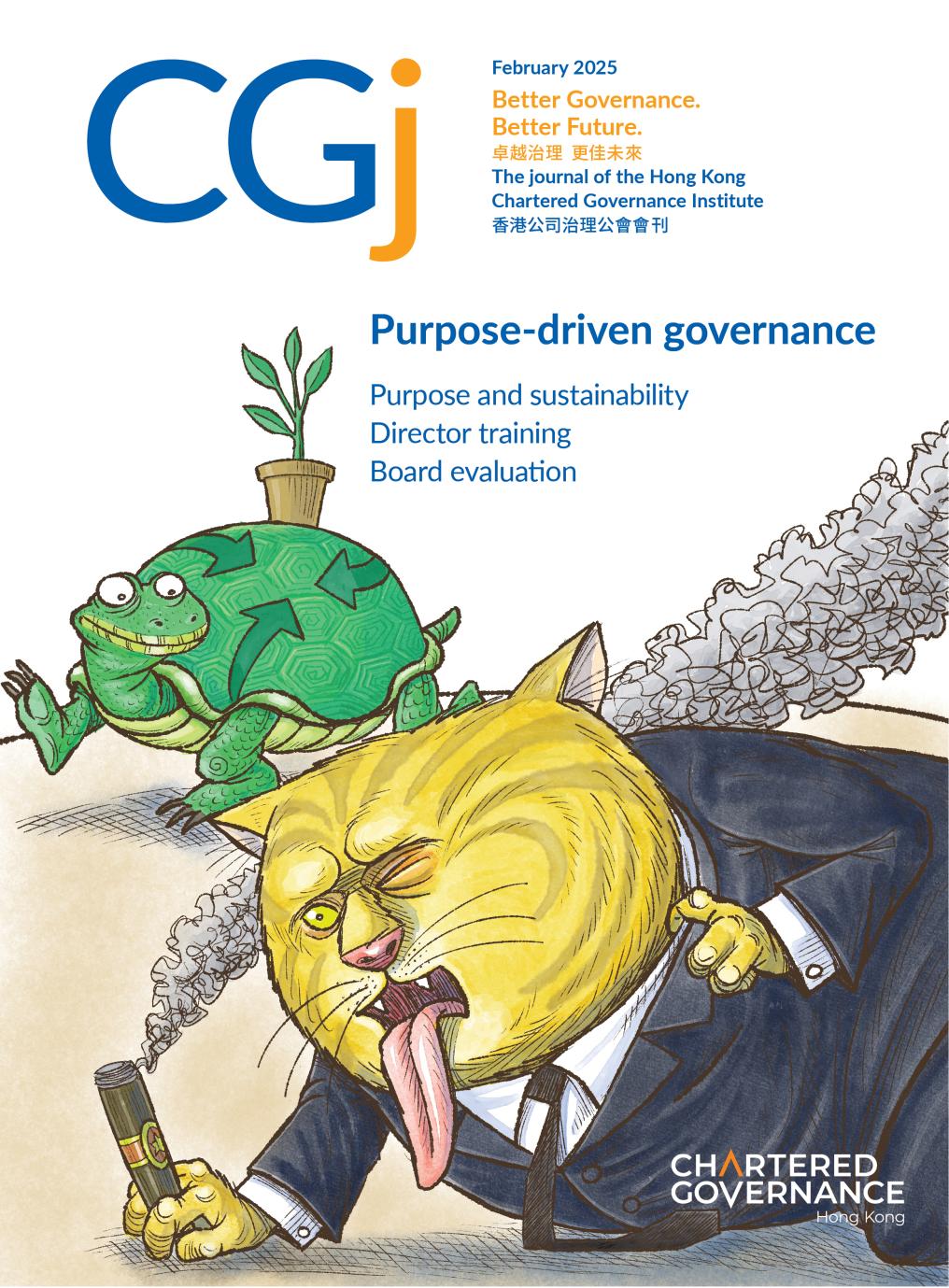
Governance for growth
The nature and purpose of governance is front and centre in this edition of CGj. The cover story, authored by Dr Victoria Hurth, Independent Pracademic and Fellow, University of Cambridge Institute for Sustainability Leadership, focuses on how purpose-driven governance can help organisations achieve sustainability.
Our Institute has long been a supporter of purpose-driven governance. Good governance frameworks help organisations clarify what their core values and aspirations are, and how they can create value for all stakeholders, including employees, customers, communities and the environment. Moreover, as Dr Hurth points out in her cover story, this purpose-driven approach is gaining momentum globally – the ISO 37000 standard on organisational governance, for example, establishes purpose as being central to governance decision-making.
A focus on social, environmental and ethical goals does not, however, need to come at the cost of profit generation. Indeed, organisations can only achieve these goals if they are financially viable and, in line with this concept, our strategic theme for 2025 is Governance for Growth. We launched this theme at a seminar – Governance: The Driver of Growth – held on 16 January in association with the Asian Financial Forum. The speaker lineup included top level experts from across the governance spectrum, including regulators, directors, senior managers and, of course, professional practitioners. This enabled us to address our 2025 strategic theme from multiple perspectives.
In my message this month, I would like to emphasise why our 2025 strategic theme is so relevant both to the current operating environment and to our profession. Firstly, its relevance to the current business landscape is not hard to see. Slower economic growth globally means that organisations need to be all the more agile and responsive to change. Robust governance frameworks facilitate better decision-making in response to market shifts, emerging technologies and regulatory changes, but they also lead to better risk mitigation and enhanced relationships with stakeholders – factors which are becoming increasingly critical to success in the current operating environment.
But achieving a broader recognition of the positive benefits of governance is also important. Good governance is often viewed through the lens of compliance and regulation, leading to a focus on the cost it represents for organisations. Our 2025 theme seeks to rebalance this view by emphasising the fundamental role that good governance plays as an enabler of organisational success. This shift in perception has very significant implications for our profession. Where governance is seen as a strategic asset, governance professionals can more easily secure the support needed to implement effective governance frameworks and practices.
So I leave you to another excellent edition of this journal and look forward to exploring our strategic theme for 2025 at other events lined up for the rest of the year. Good governance is integral to organisations’ missions and objectives. Ultimately, bringing us back to the cover theme of this edition of CGj, financial success and the need to adhere to responsible and sustainable business practices are closely aligned. As the business landscape continues to evolve, the significance of good governance as an enabler will only grow, underscoring its essential role in leveraging opportunities, as well as driving sustainable growth and value creation for all stakeholders.


